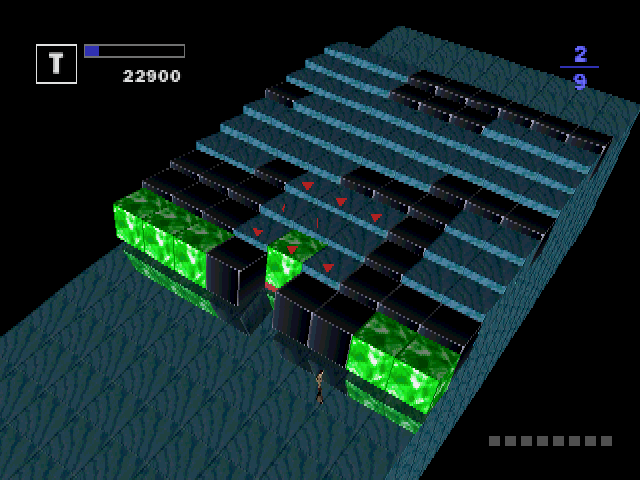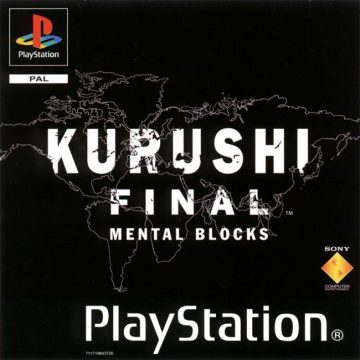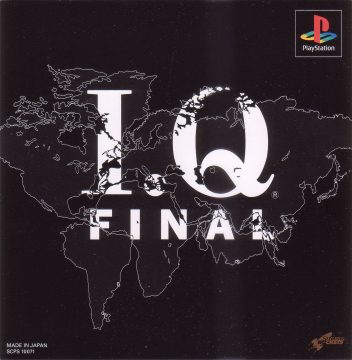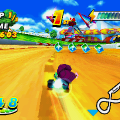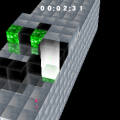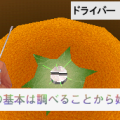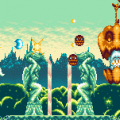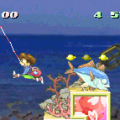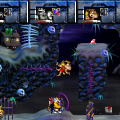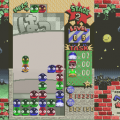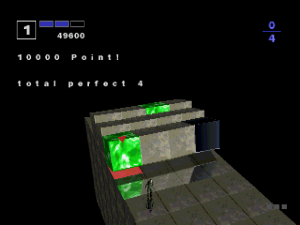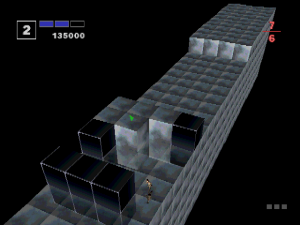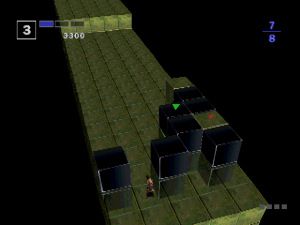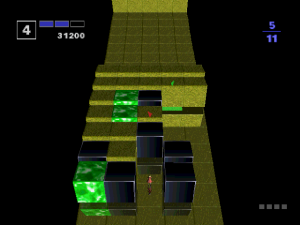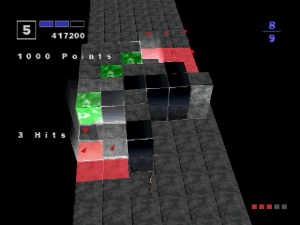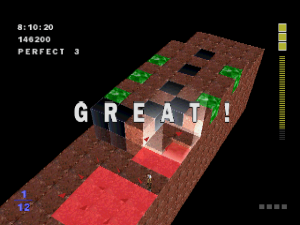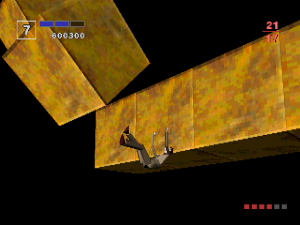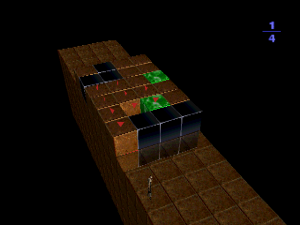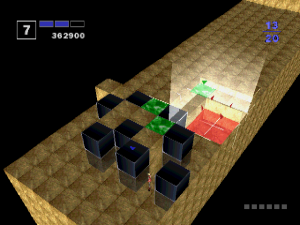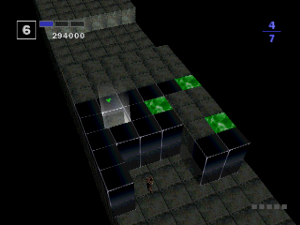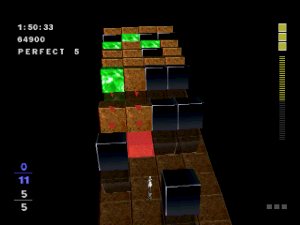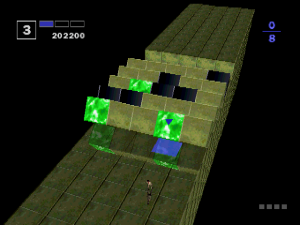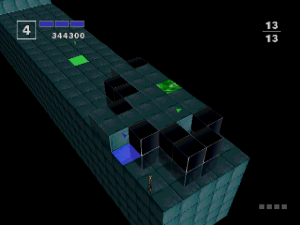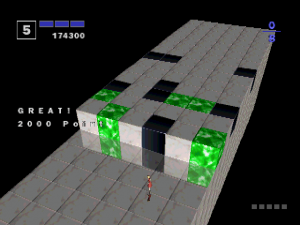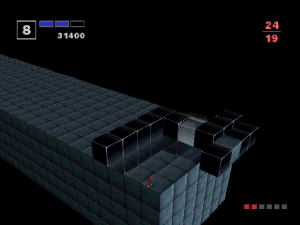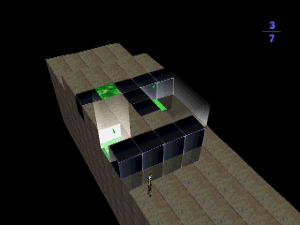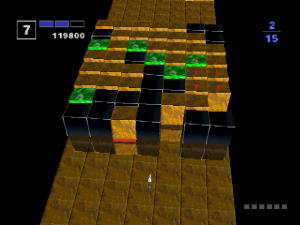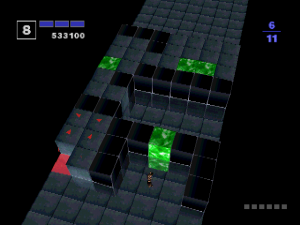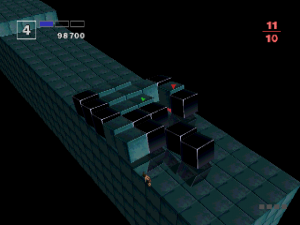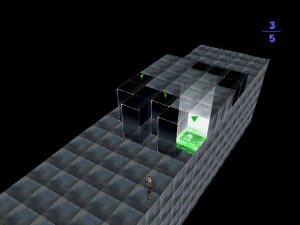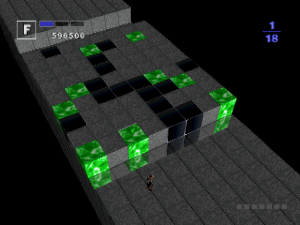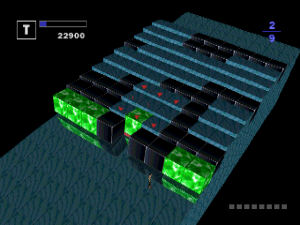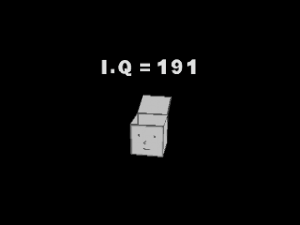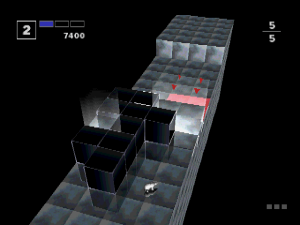- Intelligent Qube
- I.Q Final / Kurushi Final
- I.Q Remix+
- I.Q Mania
Nearly two years after the first game’s release, an expanded version was released in Japan and Europe simply known as I.Q Final (or Kurushi Final: Mental Blocks, for our European readers). At first glance, it’s largely the same as before, but there’s a few things changed and added that make for an arguably better experience.
For a start, each stage only lasts for three rounds instead of four, so you’ll get through them more quickly. The scoring system is also tweaked: you now only earn a PERFECT grade if you capture all the cubes under a certain number of moves, whereas going over that limit will merely earn you a GREAT. You’ll still get a new row of cubes for your troubles, but less points as a result.
Unlike the original, you can start from the furthest stage you’ve finished instead of doing everything from the beginning every time. This allows you to reach further into the game at your own pace, though you won’t get particularly high scores. This only matters if you’re looking to unlock the various new characters who have been introduced, since they require achieving a certain IQ in order to become playable.
The characters all play identically, but they have cute little touches like the squeaks in Dickson’s basketball shoes as he runs around or the parachute that Morgan pulls open when falling into the abyss. They even have unique endings if you’re able to beat the game, some of which are amusingly strange.
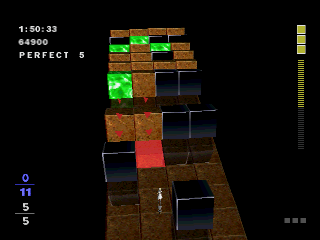
Apart from the main mode and Original mode (which has now been labelled Create and is available from the start), the meat of the package is in the new gameplay modes. Firstly is 100 Attack, where you have to solve 100 unique puzzles within a limited number of moves. While you’re allowing to exceed that number and beat the puzzle, it won’t properly count towards the total 100. You’re provided with little videos showing solutions to beaten puzzles, to encourage you give them another try.
Survival mode has you simply solving puzzles for as long as you possibly can, and it throws in another challenge by having you solve two sets of puzzles at the same time. This is also where the multiplayer comes in, as you and another player can compete against each other to see who survives the longest.
A secret third mode is unlocked if you beat the main mode with a high enough IQ or play Survival for a particularly long time. This mode is called Tektonics, and you’re tasked with trying to solve gigantic puzzles until you’re able to fill up a meter and reach the end. However, this meter’s quite slow and the puzzles are especially fiendish, making this a mode for the experts and die-hards.
In terms of gameplay, this is perhaps the peak of the series with how much of it there is to play around with. In terms of presentation, there’s some slight differences though it evens out to being simply “different” rather than notably better or worse. There’s new textures for the cubes, which go for a more detailed and sometimes earthy look compared to the original’s stark stylings. The more complex sections such as later stages and the Survival and Tektonics modes force the framerate to drop from 60 to 30 frames per second in order to handle the onscreen action.
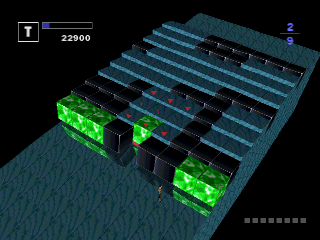
Takayuki Hattori returns with a brand new soundtrack much in the same style as the original, backed by an even larger orchestra this time around. There’s a greater number of tracks, allowing each stage to receive its own piece and creating a lengthier emotional sequence to the player’s struggle to clear all the cubes. It’s an equally stunning score as before, albeit with a grand majestic feeling that appears more often than the unsettling tension which characterized the original’s music.
Despite the game being almost entirely in English apart from whenever you needed to save or load data, Final was never released in North America for whatever reason. At least it was able to reach Europe, unlike the following two games in the series which remained in Japan and Asia.
